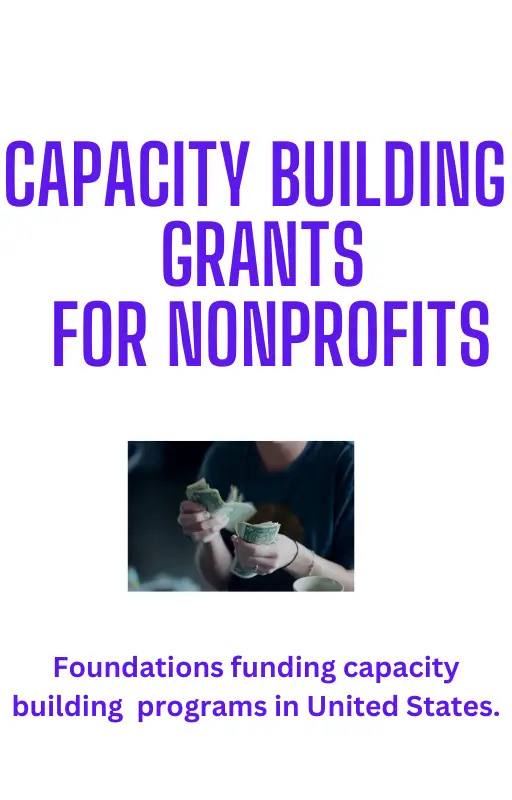Can You Get a Grant for a Health Clinic?…..Certainly Yes!
Starting or running a health clinic requires considerable investment. Thankfully, various organizations offer grants to help in this regard. By tapping into these resources, you can significantly offset costs and improve healthcare access in your community.
This in-depth guide will give you an understanding of grant opportunities, how to find and apply for them, and examples of successful health clinic grant applications.
Understanding Health Clinic Grants
Health clinic grants are financial awards that do not need to be repaid. They are provided by governmental bodies, foundations, and private organizations. These grants aim to enhance the quality of health care, promote access, particularly in underserved regions, and foster innovative medical practices.
Examples of such grants include the Health Center Program by the Health Resources and Services Administration (HRSA) and various opportunities provided by the National Institutes of Health (NIH).
Types of Grants for Health Clinics
Health clinic grants can be classified into several categories. Understanding these categories can help you identify which type suits your clinic’s needs.
1.Operational Grants
Operational grants typically cover the costs of running a health clinic, such as salaries, utilities, rent, and equipment maintenance. A prime example is the HRSA’s Operational Grant for Health Centers, which aids clinics in providing comprehensive primary and preventive healthcare services.
2 Equipment Grants
These grants are for the purchase of medical equipment. Programs like the NIH’s Shared Instrumentation Grant offer funds to acquire high-priced instruments and apparatuses that can improve the quality of patient care and treatment.
3 Research Grants
Research grants support medical research in health clinics. These grants may cover clinical trials, developing new treatments, or conducting community health studies. A well-known example is the NIH’s Research Project Grant Program (R01).
4 Construction and Renovation Grants
Certain grants aid in constructing new health clinics or renovating existing ones. For instance, the HRSA’s Capital Development Grant Program provides funding for the construction, expansion, or renovation of health centers.
Finding Grants for Your Health Clinic
Start your grant search by determining your clinic’s needs. The need for equipment, research funding, operational support, or infrastructure development will guide you towards suitable grants.
1. Grant Databases and Websites
Government websites like grants.gov provide a comprehensive database of federal grants. Other useful websites include the Foundation Center, which lists private grants. State or county websites may also offer localized grant information.
2. Professional Associations
Associations like the American Medical Association (AMA) or the National Association of Community Health Centers (NACHC) often provide information on relevant grants.
3. Networking
Engaging with other healthcare professionals can lead to information about potential grant opportunities. This can be done through healthcare conferences, local health meetings, and professional online forums.
Applying for Health Clinic Grants
The grant application process can be rigorous. Here’s a step-by-step guide to help navigate it effectively:
1. Understand the Grant Requirements
Each grant will have its eligibility criteria. Ensure your clinic meets these before investing time in the application. For example, certain grants require clinics to serve a specific population or to be located in a designated rural area.
2. Write a Compelling Proposal
The grant proposal is your chance to make your case. It should be clear, concise, and persuasive, highlighting your clinic’s needs, the plan to address these needs, and the potential impact of the grant.
3.Provide a Detailed Budget
Most grants require a detailed budget outline. This should detail how the funds will be utilized and how they will contribute to improving your clinic’s operations or community healthcare services. Your budget should demonstrate effective resource management and fiscal responsibility.
4. Collect and Submit Supporting Documents
Supporting documents often include financial statements, tax-exempt certificates, and articles of incorporation. These documents validate the information in your proposal.
5. Follow Up
After submitting your application, follow up with the grant organization to ensure they received it and that it’s under consideration. This is also an opportunity to express your gratitude and reinforce your commitment to the cause your clinic supports.
Examples of Successful Health Clinic Grants
1. Community Health of South Florida, Inc.
In 2019, Community Health of South Florida, Inc. (CHI) received a $1.5 million grant from the HRSA for the expansion of its medical services. The grant proposal focused on CHI’s commitment to serving underserved populations, highlighting the potential impact of the grant on increasing patient access to quality health care.
2. Family Health Centers of San Diego
The Family Health Centers of San Diego, a nonprofit community health center, successfully procured a grant from the California Health Facilities Financing Authority. Their compelling proposal outlined the need for a comprehensive behavioral health program in the community they serve, which was a priority for the grant program
3. Charlottesville Free Clinic
The Charlottesville Free Clinic received an operational grant from the United Way for providing free medical, dental, and pharmaceutical care to uninsured community members. The clinic’s detailed budget plan demonstrated the effective use of funds for patient care and clinic operations, contributing to their success.
Tips for a Successful Grant Application
1. Start Early
The grant application process can be lengthy, so it’s essential to start early. This allows ample time to research potential grants, gather necessary documentation, and craft a well-thought-out proposal.
2. Demonstrate Impact
Your application should highlight the potential impact of the grant. Whether it’s expanding services, serving more patients, or conducting critical research, demonstrating the direct benefits to the community can increase your chances of success.
3. Seek Expert Help
Consider consulting with grant writing professionals or engaging with mentors from clinics that have successfully secured grants. Their guidance can be invaluable in navigating the process and strengthening your proposal.
Conclusion
Securing a grant for your health clinic can significantly improve the services you provide to your community. It’s a process that requires meticulous preparation, strategic planning, and diligent execution. However, the positive impact on patient care, health outcomes, and clinic operations makes it a worthwhile pursuit.
Remember, even if your clinic isn’t successful on the first attempt, don’t be discouraged. Many clinics apply for multiple grants before securing funding. Each application is an opportunity to refine your proposal and strengthen your clinic’s strategy.






